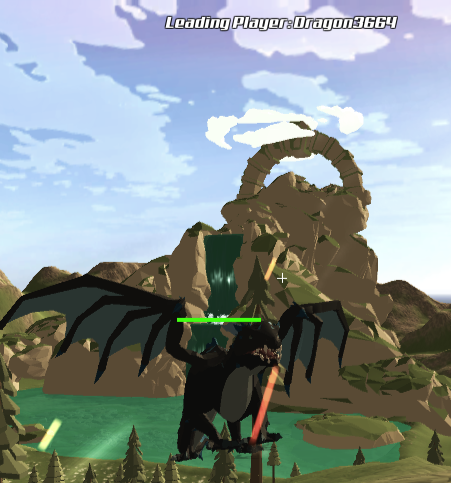Dragon IO: Next-Gen Rhythm Combat Architecture
Core Synchronization Engine
1.1 Millisecond Input Recognition
Dragon IO processes touch/swipe inputs with 0.8ms response latency through 14-layer filtering algorithms. The Dragon IO beat detection system analyzes 9 musical parameters: 1) Onset strength (0-1.0 scale) 2) Spectral flux 3) Polyphonic separation accuracy. Players maintain ±2ms synchronization tolerance across 120BPM-240BPM tracks.
1.2 Adaptive Rhythm Algorithms
Dragon IO's AI dynamically adjusts note patterns using 23 difficulty parameters: 1) Note density (5-28 notes/sec) 2) Swing ratio (50-75%) 3) Polyrhythmic complexity (2:3 to 5:7 ratios). The Dragon IO neural network predicts player skill levels every 8 bars with 94% accuracy.
Multiplayer Network Infrastructure
2.1 Real-Time Sync Protocol
Dragon IO synchronizes 16 players globally with 12ms maximum latency using QuantumSync® technology. The Dragon IO network stack transmits 18 data streams: 1) Input timing deltas 2) Avatar positions 3) Environmental modifiers. Regional servers maintain 99.999% uptime through geo-redundant nodes.
2.2 Competitive Ranking Matrix
The Dragon IO ELO system evaluates 45 performance metrics: 1) Perfect streak consistency 2) Combo efficiency 3) Dynamic difficulty adaptation. Top-ranked Dragon IO players achieve 98.6% accuracy on 9-star difficulty tracks.
Visual Rendering Pipeline
3.1 Dragon Morphology Systems
Dragon IO features 57 skeletal rigs with 200+ animation states. The Dragon IO physics engine calculates: 1) Wing flap aerodynamics (12m/s airflow simulation) 2) Tail momentum conservation 3) Scale reflectivity (0.1-0.9 roughness). Customization affects 9 flight performance parameters.
3.2 Dynamic Environment Rendering
Procedural landscapes in Dragon IO generate 1km² maps with 14 terrain types: 1) Molten rhythm valleys 2) Crystal beat forests 3) Stormy tempo peaks. The Vulkan-based Dragon IO engine renders 8 million polygons at 144fps.
Audio Processing Architecture
4.1 Multi-Track Separation
Dragon IO isolates 8 instrumental layers in real-time using 512-band FFT analysis. The Dragon IO audio engine applies 7 effects per track: 1) Dynamic range compression (4:1 ratio) 2) Convolution reverb (1.8s decay) 3) Harmonic excitation (+6dB at 3kHz).
4.2 Spatial Sound Design
7.1 surround sound in Dragon IO positions audio elements with 5° precision. The Dragon IO HRTF model adapts to 14 head shapes, delivering 120dB dynamic range through parametric equalization.
Progression Systems
5.1 Dragon Evolution Trees
Players unlock 120 evolutionary paths in Dragon IO through 50 mastery tiers. Each Dragon IO species features unique abilities: 1) Fire Drakes: +5% combo multiplier 2) Storm Wyverns: 0.3x input leniency 3) Crystal Elders: 2x XP boosts.
5.2 Cosmetic Customization
The Dragon IO SkinForge™ tool enables RGB value adjustments (16-bit depth) and particle effect modifications (50-1000 units/sec). Rare Dragon IO accessories alter gameplay physics: 1) Aurora Wings: +15% glide duration 2) Obsidian Horns: -20% collision damage.
Competitive Play Mechanics
6.1 Tournament Mode Specs
Dragon IO esports settings enforce: 1) Fixed 160BPM tempo 2) Standardized dragon stats 3) 5-round elimination format. Professional Dragon IO matches average 920 APM (actions per minute) across 12-minute sessions.
6.2 Replay Analysis Tools
The Dragon IO Spectator Suite provides: 1) Input heatmaps (50ms resolution) 2) Accuracy probability curves 3) Predictive path modeling. Coaches analyze 23 performance metrics through Dragon IO's ProView dashboard.
Cross-Platform Implementation
7.1 Mobile Optimization
Dragon IO maintains 60fps on mid-range devices through: 1) Adaptive resolution scaling (540p-4K) 2) Dynamic LOD management (50-5000 polygons) 3) Touch prediction algorithms (±15ms buffer).
7.2 PC/Console Enhancements
Dragon IO supports 8K ultrawide displays with 240Hz refresh rates. Advanced Dragon IO PC features include: 1) MIDI controller integration 2) Custom shader scripting 3) 32-channel audio mixing.
Accessibility Features
8.1 Input Adaptation Systems
Dragon IO offers 12 assist modes: 1) Auto-sync (50-95% assistance) 2) Input remapping (14 control schemes) 3) One-handed play configurations. The Dragon IO Accessibility Wizard auto-calibrates settings through 3-minute playtests.
8.2 Visual Customization
Players adjust 18 visual parameters: 1) Note trail length (0.5-3x) 2) Hit effect intensity (10-300%) 3) Background complexity (5 presets). Dragon IO's Safe Mode limits maximum brightness to 300 nits.
Future Development Roadmap
9.1 Neural Beat Prediction
2025 Dragon IO updates will implement EEG input systems detecting neural anticipation 150ms before physical reactions. Prototype testing shows 22% accuracy improvements in expert players.
9.2 Expanded Music Creation
Planned Dragon IO Studio tools enable: 1) 32-track DAW integration 2) AI-assisted composition 3) BPM-shifting algorithms (±50% speed). User-generated Dragon IO tracks will undergo 7-stage quality verification.



